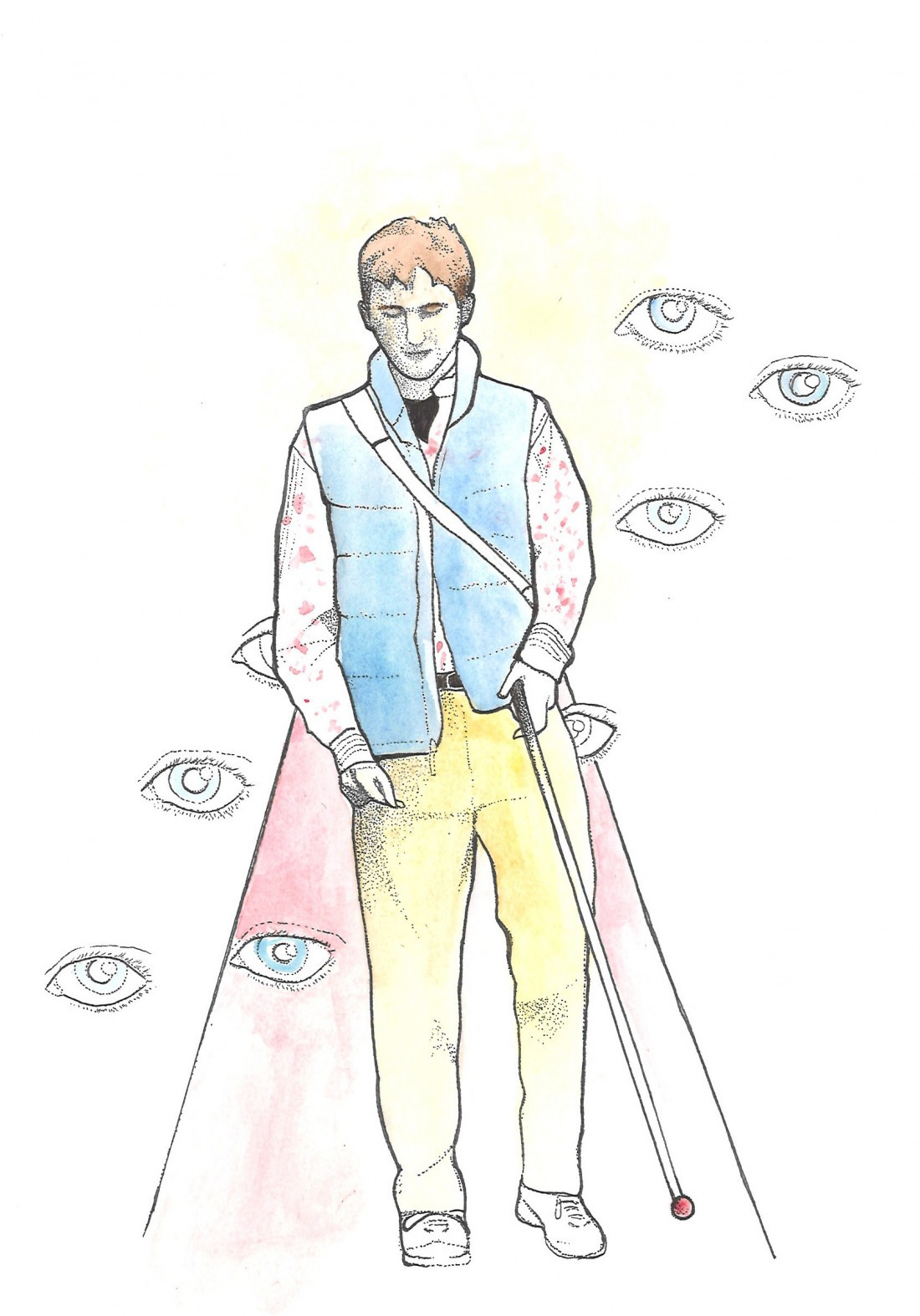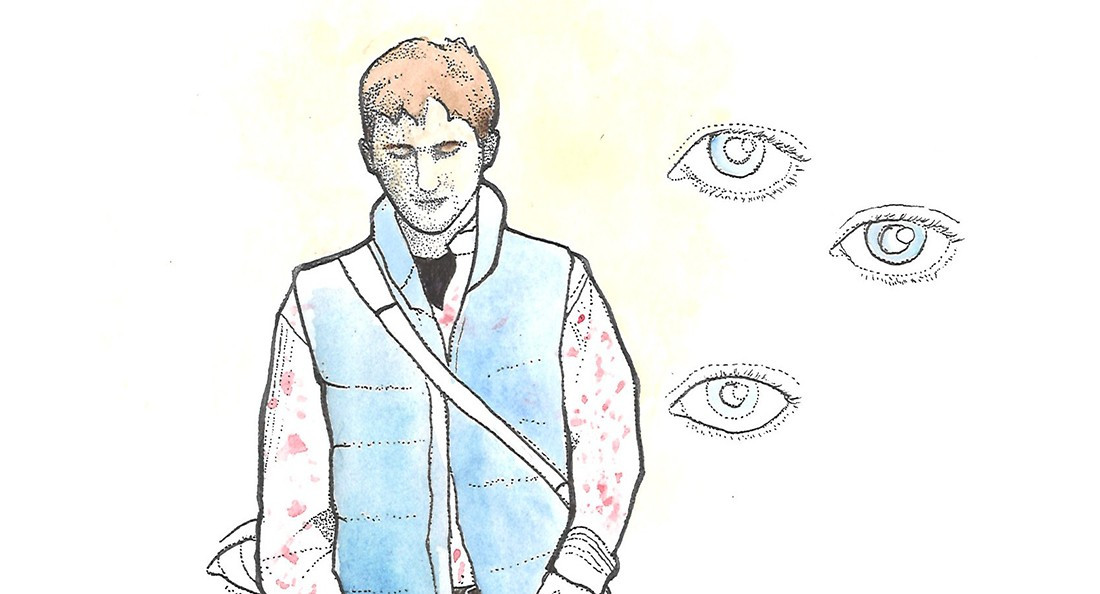Students reach out with White Cane Awareness Week
University could do more to advocate for visually-impaired people
How easy is it to navigate the University of Winnipeg (U of W) when visually impaired?
The Canadian Council of the Blind promoted White Cane Awareness Week from Feb. 5 to 11 by setting up a booth in Riddell Hall, inviting students to come and talk with people who are visually impaired or fully blind.
Rostant Ras Rico John was sitting at the booth. He lost most of his sight due to glaucoma, but he never lost his activism. John continues to write, broadcast and protest. He has always had a strong need to stand up and fix the world, whether it’s dealing with issues surrounding the African community or raising awareness for the blind and partially sighted.
He says that while the U of W is supportive of people with disabilities, there is a lot more that needs to be done.
“The accessibility in many ways is good, but the amount of leeway (with services) given by the university far underscores what is needed. Not just a little more, we need plenty more,” John says.
“If granted, (more comprehensive services) would help people move much closer to achieving what they want to achieve,” John says. People could be “a little more confident, a little more independent, a little more adherent, however you want to take it.”
Some of the most common accommodations provided are access to volunteer note-takers, extensions on exams and a quiet space to write those exams in. Volunteer note-takers provide class notes in an electronic format, compatible with screen readers or Kurzweil, a text-to-speech program.
However, according to Jesse Turner, an accessibility advisor, blind and partially-sighted students have a lot of hoops to jump through to get the help they need.
“They must register with AS (accessibility services), provide supporting medical documentation, request things like audio format textbooks long before the semester begins, share their accommodation needs with their instructors, book exams in advance with AS,” Turner writes in an email to The Uniter.
Turner says that on top of all that, there is a great deal of stigma surrounding disability, especially for students who have “non-visible” disabilities. Non-disabled students may feel that disabled students are getting an unfair advantage, when the accommodations are meant to level the playing field.
“Abelism is the greatest barrier,” Turner says.
John hopes the U of W will continue to raise awareness of the needs of visually-disabled students. He says the biggest thing that Winnipeggers in general need to learn is respect.
“People with sight disabilities are people, too. We don’t need condescension or pity or sympathy. We can understand empathy. We can understand respect for dignity,” John says.

Published in Volume 71, Number 21 of The Uniter (February 22, 2017)







